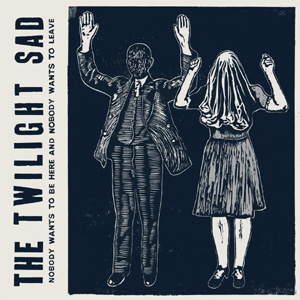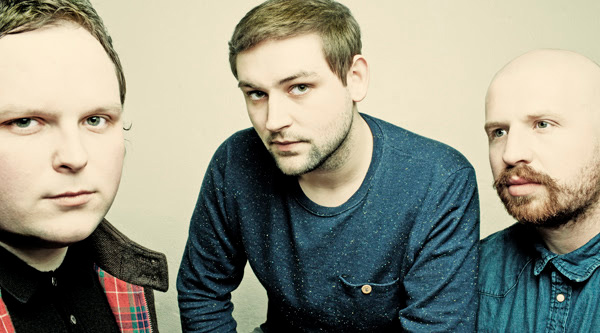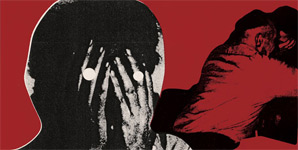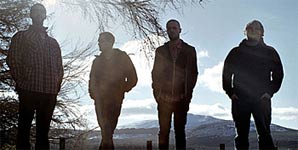Review of No One Can Ever Know Album by The Twilight Sad
With almost a decade's worth of uneasy listening behind them, only the most nonchalantly optimistic soul would augur a drastic change in The Twilight Sad's psyche. Shrouded in mystique with a brooding intensity money can't buy, James Graham and long time cohorts Andy MacFarlane and Mark Devine have always delivered where many pretenders to the throne of miserablist pop failed dramatically. A simple trawl through the band's extensive back catalogue reveals an outfit unafraid of revealing their innermost thoughts, often drowned in a sea of feedback, distortion and ear shredding white noise. In the flesh the results have a tendency to be even more dynamic, Graham's imposing figure quite apt for a band whose earliest lyrical asides involved kids on fire in the bedroom and a rabbit that must die.
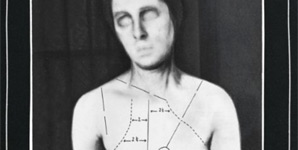
As opening statements go, they don't come much better than 2007's debut long player 'Fourteen Autumns & Fifteen Winters', a record that not only introduced The Twilight Sad's dark and twisted narratives to the world, but created a hefty weight of expectation for what followed in its wake. Unsurprisingly, 2009's,'Forget The Night Ahead' suffered from being built up beyond its means when in hindsight, it represented a band on the cusp of change; a change mustered on 'No One Can Ever Know'; and therefore succinctly bridged the gap between past and present.
Previously characterised by a relentless wall of sound that sits somewhere between My Bloody Valentine's thirty minutes long 'You Made Me Realise' live "holocaust" and the industrial clamour of Nine Inch Nails in 'Downward Spiral' mode, 'No One Can Ever Know' heralds a marked departure from the sonic maelstroms of yore. In a recent interview James Graham admitted he'd been listening to the likes of Portishead, Cabaret Voltaire and PiL and there's no mistaking the influence of all three on this record. The addition of Andrew Weatherall - the man responsible for introducing Primal Scream to dance music some twenty-odd years ago - on production duties cannot be underestimated either. Indeed it was his idea to experiment with vintage analogue synths rather than bathe the songs in customary guitar induced noise that helped augment a sound harking back to Martin Hannett's now legendary production style on 'Unknown Pleasures'.
Interestingly, the first track made publicly available from these recordings at the back end of last year, 'Dead City', seemed to hint at a move into bolder territories. While the heavy thrust of Andy MacFarlane's guitar remained omnipresent throughout its six-and-a-half minutes, the robotic rhythm punctuating its underbelly resembled Joy Division in their bleakest hour. Likewise the pulsating 'Don't Move', which takes 'She's Lost Control' out of its Manchester bedsit and gives it a post millennium makeover, not least courtesy of Graham's trademark Scottish drawl.
Elsewhere, there's a tendency to use their newfound electronic sheen as a low budget answer to a symphonic orchestra. What's more, the results are startling. Take the opening 'Alphabet' for example, which falls somewhere between Lydon's exasperating 'Poptones' and the kind of eloquent baroque pop James Blake achieved so successfully with 'A Wilhelm Scream'. Lyrically ambiguous yet menacing, Graham imploring "She's lying on the floor" at the song's outset. Similarly, the more stripped down 'Sick' finds itself wedged between a rock and an ambient place, conjuring up images of 'In Rainbows' had it been conceived on the outskirts of Glasgow.
And so their departure into mukry waters continues. 'Nil' dips it toes into pastures Neu! courtesy of a looped drum structure enveloping its prosodic melody, while 'Another Bed' takes its inspiration from the late John McGeoch's songbook, fusing elegiac guitar textures with intrinsically synthetic beats. "I'll find you," insists Graham, again demonstrating a poised intensity severely lacking in many of The Twilight Sad's contemporaries.
Overall, 'No One Can Ever Know' is the sound of a band inspired by the past to create the next phase in their development. Unashamedly retro in some ways, yet utterly futuristic as a whole. If 'Fourteen Autumns & Fifteen Winters' was their 'Loveless' and 'Forget The Night Ahead' their 'Gold Against The Soul', 'No One Can Ever Know' is their 'Metal Box' only with an added layer of cold cynicism lurking at its core. Triumphant yet brutal, but then where The Twilight Sad are concerned it would be wrong to expect anything else.
4/5
Dom Gourlay
Site - http://www.thetwilightsad.com

